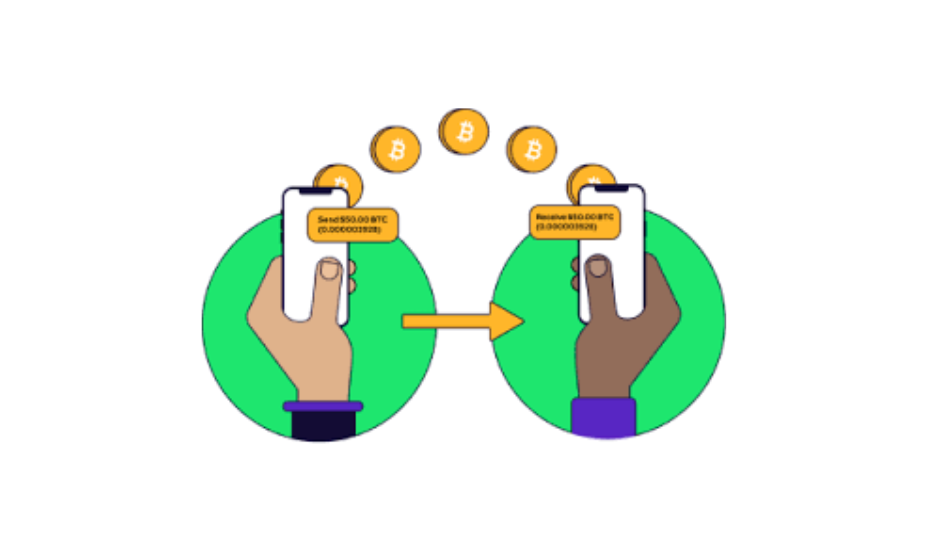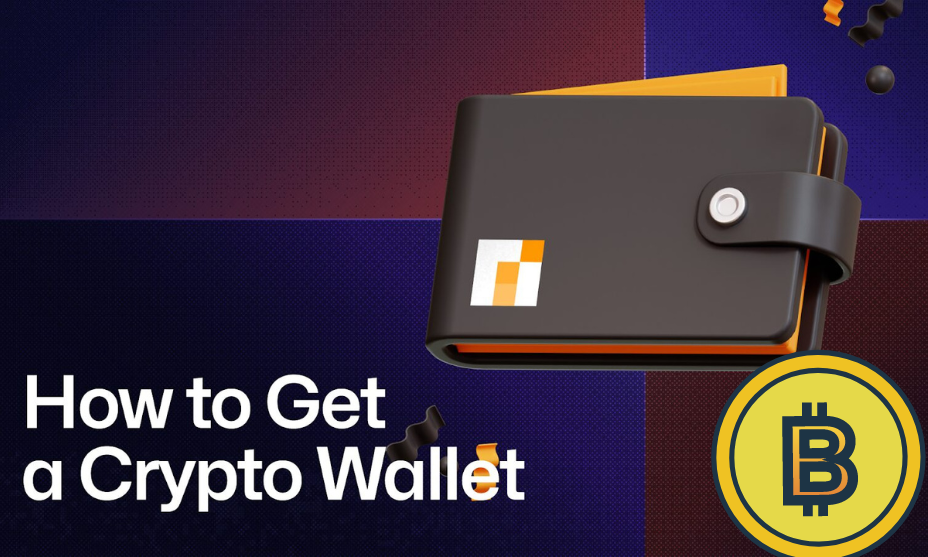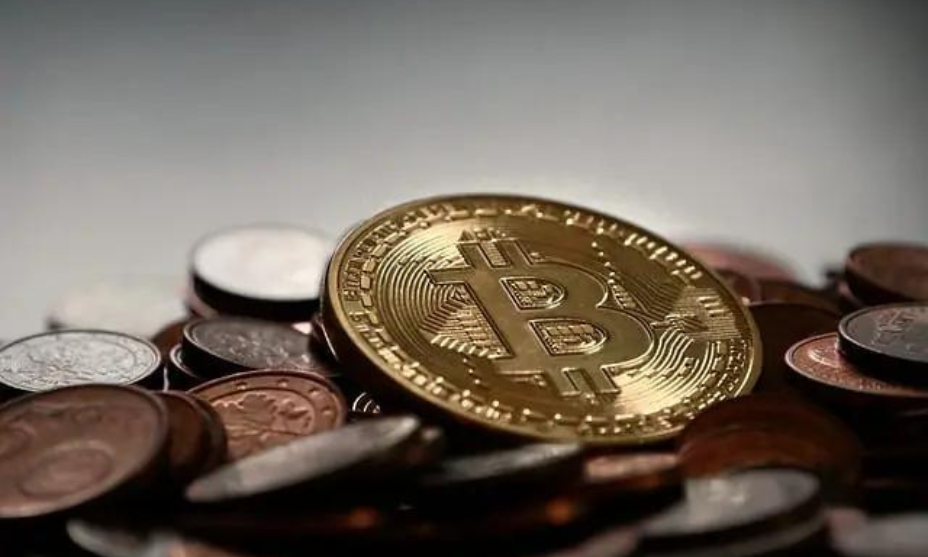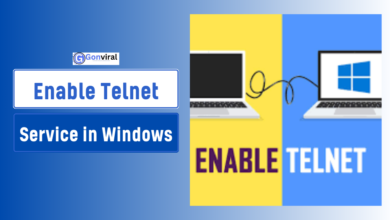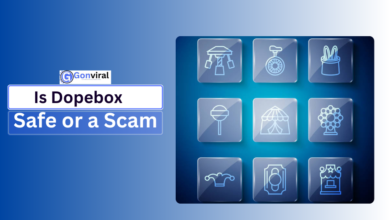Fintechzoom Best Crypto Wallets for Secure Trading
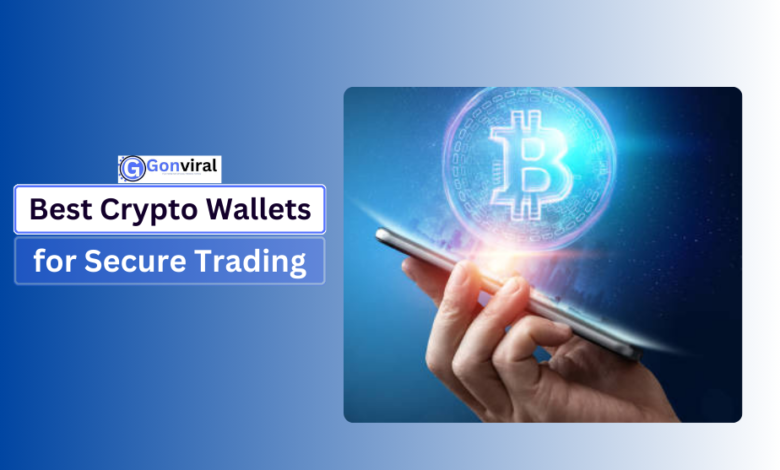
Introduction
When it comes to navigating the world of cryptocurrency, having a reliable crypto wallet is essential. In this article, we will explore the Fintechzoom best crypto wallet options, ensuring that your digital assets are secure and easily accessible.
Understanding Crypto Wallets
What is a Crypto Wallet?
A crypto wallet is a digital tool that allows users to store and manage their cryptocurrencies, such as Bitcoin, Ethereum, and others. Unlike a physical wallet that holds cash, a crypto wallet doesn’t actually store the coins themselves; instead, it stores the private keys that give you access to your cryptocurrency on the blockchain. These private keys are essential for proving ownership and enabling transactions.
How to Do Crypto Wallets Store Keys?
Crypto wallets store two types of keys: public keys and private keys. The public key is similar to an email address; it can be shared with others to receive funds. The private key, however, is like a password; it must be kept secret because it allows you to access and manage your cryptocurrencies. If someone obtains your private key, they can take control of your assets, just like how understanding financial security with investments is crucial, as discussed in Money Fintechzoom.
Proving Ownership
When you buy or earn cryptocurrencies, they are recorded on the blockchain, which is a decentralized ledger. Your wallet allows you to access this ledger using your private keys, much like secure access to stocks such as Fintechzoom Apple Stock. By signing transactions with your private key, you prove ownership of the cryptocurrency associated with your public key. This cryptographic process ensures that only the owner can initiate transactions, providing a high level of security.
Sending and Receiving Cryptocurrencies
Using a crypto wallet, you can easily send and receive cryptocurrencies. To send funds, you input the recipient’s public key (their wallet address) and specify the amount, similar to how transactions work with financial markets like Fintechzoom.com FTSE 100. Your wallet then creates a transaction, signs it with your private key, and broadcasts it to the blockchain network.
Conversely, to receive funds, you provide your public key to the sender. Once the transaction is confirmed on the blockchain, the cryptocurrency will appear in your wallet.
Security Measures
To ensure the safety of your cryptocurrencies, it’s crucial to implement various security measures. Always keep your private keys confidential and consider using two-factor authentication (2FA) when available, similar to security measures in high-value investments discussed on luxury fintechzoom. Regularly update your wallet software and be wary of phishing attempts that aim to steal your credentials.
Why Do You Need a Crypto Wallet?
Security of Your Assets
A crypto wallet provides a secure way to store your digital assets. Unlike exchanges, which can be vulnerable to hacking and theft, wallets give you full control over your private keys. These keys are crucial for accessing your cryptocurrency. By storing your assets in a wallet, especially a hardware wallet, you reduce the risk of losing your funds to cybercriminals, just as investors should secure their forex trades with the right brokers, as highlighted in FintechZoom Best Forex Broker.
Ownership and Control
With a crypto wallet, you maintain complete ownership and control of your cryptocurrencies. When you store your assets on an exchange, you’re essentially trusting the platform to safeguard your funds.
However, in the event of a security breach or if the exchange goes out of business, you could lose your assets. A wallet allows you to directly manage your coins and tokens, giving you peace of mind regarding your investments.
Easy Transactions
Crypto wallets facilitate easy transactions, whether you’re sending or receiving cryptocurrency.With just a few clicks, you can transfer your assets to another wallet or make purchases using your digital currency, similar to how traders optimize transactions with tools like FintechZoom Pro. Many wallets also support multiple cryptocurrencies, making it easier to manage your diverse portfolio in one place.
Access to Different Cryptocurrencies
Not all cryptocurrencies are available on every exchange. By using a wallet, especially a multi-currency wallet, you can store a wide range of cryptocurrencies beyond what is offered on specific trading platforms. This flexibility allows you to diversify your investments and take advantage of various opportunities in the crypto market, similar to how stock investors track trends like Fintechzoom GME Stock.
Privacy and Anonymity
Using a crypto wallet can enhance your privacy. While transactions on the blockchain are public, the personal information tied to your wallet address can remain anonymous. Many wallets do not require extensive personal information to set up, allowing you to maintain a higher level of privacy, just as investors look for privacy when managing stocks like FintechZoom NVDA Stock.
Long-Term Storage Solutions
If you plan to hold cryptocurrencies for the long term, a wallet is an essential tool. Hardware wallets, in particular, are designed for long-term storage and are often referred to as “cold storage” solutions. They are less susceptible to online threats, making them ideal for investors looking to securely store their assets over extended periods.
Backing Up Your Funds
Most crypto wallets offer options for backing up your private keys or recovery phrases. This is crucial for protecting your assets. If you lose access to your wallet due to hardware failure or forgotten passwords, a backup ensures you can still retrieve your funds, much like protecting investments in volatile markets such as Fintechzoom AMC Stock. Understanding how to create and manage backups is essential for every crypto investor.
Integration with Decentralized Finance (DeFi)
Crypto wallets play a significant role in the growing DeFi ecosystem. They allow users to interact with decentralized applications (dApps) and participate in activities like lending, borrowing, and trading without intermediaries. By using a wallet, you can take full advantage of the opportunities DeFi offers, enhancing your investment potential.
Staying Updated with Market Trends
Many wallets provide features that keep you informed about market trends and cryptocurrency prices. This information can be invaluable for making informed decisions about when to buy, sell, or hold your assets. Staying connected with your wallet can give you a competitive edge in the fast-paced crypto market, similar to how staying updated with Banking FintechZoom can help investors navigate financial markets.
User-Friendly Interfaces
Modern crypto wallets are designed with user-friendly interfaces, making it easier for both beginners and experienced users to navigate. Many wallets offer educational resources and customer support, helping you understand how to use your wallet effectively. A good wallet should enhance your crypto experience, making it accessible and enjoyable.
How To Get a Crypto Wallet
Choose the Type of Wallet:
- Hot Wallet: Online wallets (easy to access, but less secure).
- Cold Wallet: Offline wallets (more secure, but less convenient).
Select a Wallet Provider:
- For hot wallets: Consider providers like Coinbase, Binance, or Blockchain.com.
- For cold wallets: Look at hardware wallets like Ledger or Trezor.
Download or Purchase:
- For hot wallets, download the app or create an account on the provider’s website.
- For cold wallets, order the hardware wallet from the manufacturer’s website.
Create an Account:
- If using a hot wallet, follow the registration process, including email verification.
Set Up Security Features:
- Enable two-factor authentication (2FA) for added security.
- Create a strong password.
Backup Your Wallet:
- Write down your recovery seed phrase (usually 12-24 words) and store it securely.
Add Funds:
- Buy cryptocurrency through the wallet interface or transfer from another wallet.
Use Your Wallet:
- Start sending, receiving, or trading cryptocurrency as needed.
Stay Informed:
- Keep up with security updates and best practices for wallet safety.
Keep Your Wallet Secure:
- Regularly review security settings and ensure your recovery information is safe.
What cryptocurrency wallet is the best?
Many of the top cryptocurrency wallets have already been reviewed by us. Your objectives, such as whether you would want a cold wallet to keep your keys on an offline hardware device or a hot wallet that connects directly to the internet, will determine which option is best for you.
Types of Crypto Wallets
| Type of Crypto Wallet | Description | Pros | Cons | Typical Use Case |
|---|
| Hardware Wallets | Physical devices that store private keys offline, providing enhanced security against hacks. | High security, protection from malware, supports multiple currencies. | Higher cost, can be inconvenient for frequent transactions. | Long-term storage of significant crypto assets. |
| Software Wallets | Applications or software programs installed on devices (desktop or mobile) that store private keys. | User-friendly, easy access, suitable for daily transactions. | Vulnerable to malware and hacking if not secured properly. | Daily transactions and trading. |
| Web Wallets | Wallets accessed through web browsers, typically hosted by third parties. | Convenient, easy to set up, accessible from any device. | Less secure, reliant on the security practices of the service provider. | Quick transactions and trading on exchanges. |
| Paper Wallets | Physical printouts of public and private keys, often in QR code form. | Immune to online hacks, simple to create and use. | Risk of loss or damage, less convenient for transactions. | Long-term storage without reliance on technology. |
| Mobile Wallets | Apps designed for smartphones that store private keys and allow for easy transactions. | Convenient for everyday use, supports QR codes for easy payments. | Vulnerable to mobile malware, theft if the device is lost. | Everyday purchases and transactions. |
| Cold Wallets | Any wallet that is not connected to the internet, providing offline storage for cryptocurrencies. | High security, protection from online threats. | Inconvenient for frequent transactions, risk of loss or damage. | Long-term storage and secure holding of assets. |
| Hot Wallets | Wallets that are connected to the internet and allow for quick access to funds. | Easy access for trading and transactions, user-friendly. | Vulnerable to hacks and malware attacks. | Active trading and daily transactions. |
| Custodial Wallets | Wallets managed by third-party services that hold users’ private keys on their behalf. | Convenient, often integrated with exchanges, customer support available. | Less control over assets, reliant on the provider’s security. | Beginners and those who prefer not to manage keys. |
Best Crypto Wallets for Secure Trading in September 2024
| Wallet Name | Best For | Key Features |
|---|---|---|
| Coinbase Wallet | Beginners | User-friendly interface, supports a wide range of cryptocurrencies, built-in DApp browser. |
| MetaMask | Ethereum | Focused on Ethereum and ERC-20 tokens, easy integration with DApps, customizable gas fees. |
| TrustWallet | Mobile | Mobile-friendly, supports multiple blockchains, built-in DApp browser, and staking features. |
| Electrum | Desktop Bitcoin | Lightweight, fast transactions, advanced features for experienced users, supports hardware wallets. |
| BlueWallet | Mobile Bitcoin | Simple interface, supports Lightning Network, allows multiple wallets within the app. |
| Exodus | Desktop | Intuitive design, supports a wide variety of cryptocurrencies, built-in exchange feature. |
| Crypto.com | DeFi | Offers access to DeFi products, staking, and crypto earning features, supports a variety of assets. |
| Zengo | MPC Wallet | Focuses on security with Multi-Party Computation, user-friendly, supports various cryptocurrencies. |
Explanation of Each Paragraph
Ledger Nano X
- Overview: A brief introduction highlighting its reputation in the crypto community for security.
- Features: Lists key functionalities that set it apart from other wallets.
- Pros: Emphasizes its strengths such as portability and security.
- Cons: Points out the drawbacks, such as cost and maintenance.
Trezor Model T
- Overview: Describes its unique features, focusing on the touchscreen and open-source nature.
- Features: Explains the functionality and the range of cryptocurrencies supported.
- Pros: Discusses why users appreciate this wallet for its security and ease of use.
- Cons: Mentions the higher price and compatibility limitations.
Exodus
- Overview: Introduces its appeal to users looking for an aesthetically pleasing interface.
- Features: Details its integration capabilities and user-friendly experience.
- Pros: Highlights benefits like intuitive design and support for various assets.
- Cons: Discusses the implications of not being fully open-source.
Coinbase Wallet
- Overview: Describes its simplicity and connection to the broader Coinbase platform.
- Features: Mentions its decentralized nature and integration with DApps.
- Pros: Focuses on user-friendliness, particularly for new traders.
- Cons: Notes that it requires a Coinbase account for optimal use.
Trust Wallet
- Overview: Emphasizes its broad feature set, appealing to those interested in mobile trading.
- Features: Discusses its support for DApps and staking options.
- Pros: Outlines why users might prefer this wallet for privacy and usability.
- Cons: Points out that it is only available on mobile, limiting accessibility.
Uses of crypto wallets
| Use | Explanation |
|---|---|
| Storing Cryptocurrencies | Crypto wallets allow users to securely store various cryptocurrencies, such as Bitcoin, Ethereum, and many others. They use private and public keys to facilitate the storage and retrieval of digital assets. |
| Making Transactions | Users can send and receive cryptocurrencies through wallets. Wallets generate a unique address for transactions, enabling users to transfer assets easily and securely to other wallet addresses across the blockchain. |
| Tracking Balances | Most crypto wallets provide an interface to track the balances of different cryptocurrencies. Users can view their total holdings, the value of their assets in fiat currency, and their transaction history in real-time. |
| Securing Assets | Crypto wallets enhance security by storing private keys offline (in the case of hardware wallets) or providing advanced encryption (in software wallets). This protects users from hacking attempts and unauthorized access to their funds. |
| Interacting with dApps | Many wallets allow users to interact with decentralized applications (dApps) built on blockchain platforms. This enables functionalities such as staking, lending, and trading directly from the wallet interface without the need for exchanges. |
| Multi-Currency Support | Some wallets support multiple cryptocurrencies, allowing users to manage various digital assets in one place. This convenience simplifies portfolio management for investors with diverse holdings. |
| Backup and Recovery | Most wallets offer backup options to secure private keys. Users can create recovery phrases or seed phrases that allow them to restore their wallets in case of device loss or failure, ensuring access to their funds. |
| Privacy Features | Certain wallets provide enhanced privacy features, such as transaction anonymization or the ability to create new addresses for every transaction. This helps users maintain anonymity and security in their crypto dealings. |
| Integration with Exchanges | Many crypto wallets offer integrations with exchanges, enabling users to trade directly from their wallets without transferring funds. This feature streamlines the trading process and can reduce transaction fees. |
| NFT Management | Some wallets support non-fungible tokens (NFTs), allowing users to store, view, and trade their digital collectibles. This functionality is essential for artists and collectors who participate in the NFT marketplace. |
Features to Look for in a Crypto Wallet
When choosing a wallet, consider the following features:
Wallet Security Features
Security is paramount. Look for wallets that offer two-factor authentication, encryption, and backup options.
User Experience and Interface
A user-friendly interface can make trading more accessible, especially for beginners.
Transaction Fees
Be aware of any fees associated with transactions and conversions, as they can vary significantly between wallets.
Importance of Security in Crypto Wallets
Risks of Using Insecure Wallets
Using insecure wallets can lead to theft and loss of assets. Always prioritize security measures to protect your investments.
Best Practices for Secure Trading
- Use Hardware Wallets for long-term storage.
- Enable Two-Factor Authentication on your software wallets.
- Regularly Update Software to protect against vulnerabilities.
Comparison of Popular Crypto Wallets
Fintechzoom Reviews
In this section, we will review some of the best wallets available today, focusing on their features, security, and user feedback.
User Reviews of Top Crypto Wallets
Understanding real user experiences can provide valuable insights. Look for wallets that have positive feedback regarding security and ease of use.
Expert Reviews and Recommendations
Experts often analyze wallets for their security features and overall functionality, helping you make informed decisions.
Cryptocurrency Storage Options
Cold vs. Hot Storage
Cold storage refers to wallets that are not connected to the internet, making them less susceptible to hacking. Hot storage wallets, while convenient, are more vulnerable.
Multi-signature Wallets
Multi-signature wallets require multiple keys to authorize a transaction, adding an extra layer of security.
Custodial vs. Non-Custodial Wallets
Custodial wallets are managed by third parties, while non-custodial wallets give users full control over their private keys. Choose based on your comfort with managing security.
How to Choose a Secure Wallet for Trading
When selecting a wallet, assess:
- Compatibility with Exchanges
- Backup and Recovery Options
- Customer Support Services
Future Trends in Crypto Wallets
As technology evolves, so do wallet features. Keep an eye on advancements such as enhanced security measures and integration with trading platforms.
5 Best Hot Wallets of September 2024
| Wallet Name | Description | Features | Pros | Cons | Why It Stands Out |
|---|
| Exodus | A user-friendly hot wallet known for its intuitive design and support for multiple assets. | – Multi-currency support – Built-in exchange |
– Easy to use for beginners – Attractive interface |
– Not open-source – Limited staking options |
Great for users new to crypto. |
| Atomic Wallet | A decentralized wallet offering a wide range of cryptocurrencies and private keys control. | – Supports over 500 coins – Decentralized |
– Full control over private keys – Easy to manage |
– Some features require fees – UI can be complex |
Ideal for advanced users. |
| Coinbase Wallet | A secure and highly-rated wallet integrated with the Coinbase exchange. | – Direct exchange access – User-friendly |
– Strong security features – Excellent for Coinbase users |
– Limited to US customers for some services – High fees |
Perfect for existing Coinbase users. |
| Trust Wallet | The official wallet of Binance, known for its security and ease of use. | – Supports many tokens – In-built DApp browser |
– Strong community support – Very secure |
– Limited customer service options – Can be overwhelming for new users |
Best for Binance users and DeFi. |
| MetaMask | A popular wallet for Ethereum and ERC-20 tokens, ideal for decentralized applications (DApps). | – Supports Ethereum & tokens – Browser extension |
– Excellent for DApp interaction – Open-source |
– Can be vulnerable to phishing attacks – Limited to Ethereum network |
5 Best Cold Wallets of September2024
| Wallet | Key Features | Security | Usability | Price Range |
|---|---|---|---|---|
| Ledger Nano X | – Supports 1800+ cryptocurrencies – Bluetooth connectivity for mobile use |
– Top-notch security with a secure chip – PIN code protection and recovery phrase |
– User-friendly app (Ledger Live) – Mobile and desktop compatibility |
$149 – $199 |
| Trezor Model T | – Touchscreen interface for easy navigation – Supports a wide range of coins |
– Strong security features – Passphrase option and recovery seed |
– Simple setup process – Web-based interface via Trezor Wallet |
$219 – $249 |
| Coldcard Wallet | – Specializes in Bitcoin only – Air-gapped design for maximum security |
– Hardware-based key generation – Secure element for extra protection |
– Advanced features for experienced users – Supports complex transactions |
$119 – $139 |
| BitBox02 | – Open-source software for transparency – MicroSD card backup option |
– 2-factor authentication (2FA) – Encrypted backup options |
– Intuitive interface – Easy firmware updates |
$99 – $139 |
| Ellipal Titan | – Completely air-gapped, no internet connection – Built-in camera for QR code scanning |
– No USB or Wi-Fi connection – Self-destruct feature if tampered with |
– Mobile app for transaction management – Simple setup process |
$199 – $249 |
Explanations:
Ledger Nano X
- Key Features: Offers extensive support for numerous cryptocurrencies, enabling users to manage a diverse portfolio. The Bluetooth feature allows users to connect with mobile devices, enhancing convenience.
- Security: Utilizes a secure chip to safeguard private keys, combined with a PIN code and recovery phrase for additional layers of security.
- Usability: The Ledger Live app provides a straightforward user interface, compatible with both mobile and desktop platforms, making it accessible for all users.
- Price Range: Positioned in the mid-range, reflecting its advanced features and security protocols.
Trezor Model T
- Key Features: Known for its intuitive touchscreen interface, making navigation easier. It supports a wide range of cryptocurrencies, catering to various user needs.
- Security: Offers robust security features, including a passphrase option for added privacy, ensuring users have control over their funds.
- Usability: The setup is user-friendly, and the web-based interface allows for easy access to funds and transactions.
- Price Range: Slightly higher than basic models due to its advanced features and security measures.
Coldcard Wallet
- Key Features: Focuses exclusively on Bitcoin, making it ideal for users dedicated to this cryptocurrency. The air-gapped design enhances security by keeping the device offline.
- Security: Employs hardware-based key generation and a secure element, significantly increasing the wallet’s protection against hacks.
- Usability: While designed for experienced users, its features are detailed and informative, allowing advanced transaction management.
- Price Range: Affordable for a specialized Bitcoin wallet, appealing to serious Bitcoin investors.
BitBox02
- Key Features: The open-source nature of its software allows for community-driven transparency. Users can back up their wallet with a microSD card for added safety.
- Security: Provides 2FA and encrypted backup options, ensuring that funds are well-protected.
- Usability: Its interface is designed for simplicity, with easy firmware updates to keep the wallet secure and efficient.
- Price Range: Competitive pricing for a feature-rich wallet, making it an attractive option for users.
Ellipal Titan
- Key Features: Offers a completely air-gapped design, meaning it has no internet connectivity, making it extremely secure. The built-in camera for QR code scanning simplifies transactions.
- Security: The lack of USB or Wi-Fi connections significantly reduces the risk of online hacks. The self-destruct feature provides an additional safety net in case of tampering.
- Usability: The mobile app streamlines transaction management, and the setup process is designed to be user-friendly.
- Price Range: Positioned at the higher end due to its unique security features and air-gapped design.
- This table provides a comprehensive look at the best cold wallets for September 2024, helping users make informed decisions based on their needs and preferences.
How To Choose a Crypto Wallet
Pros and Cons of using the FintechZoom Best Crypto Wallet:
| Pros | Cons |
|---|---|
| User-Friendly Interface | Limited Availability |
| Easy to navigate, making it suitable for beginners. | May not be available in all regions. |
| High Security Features | Potential for Technical Issues |
| Implements advanced security protocols, including 2FA and encryption. | Users may experience glitches or downtime. |
| Multi-Currency Support | Learning Curve for Advanced Features |
| Supports various cryptocurrencies, allowing diversification. | Some advanced features may be complex for new users. |
| Regular Updates and Improvements | Transaction Fees |
| The wallet is frequently updated for better performance and security. | Users may incur fees for transactions and conversions. |
| Integration with Other Services | Risk of Loss Due to User Error |
| Can connect with exchanges and other fintech services for ease of use. | Users need to be cautious about managing private keys and passwords. |
| Responsive Customer Support | Dependency on Internet Access |
| Offers timely assistance through various channels. | Requires a stable internet connection for transactions. |
FintechZoom Best Crypto Wallet: Tips for New Users
If you’re new to the world of cryptocurrencies, choosing a reliable crypto wallet is crucial. Here are some essential tips to help you navigate your wallet securely and effectively.
Secure Your Backup
One of the most critical aspects of using a crypto wallet is ensuring you have a secure backup. Your wallet contains private keys that grant access to your funds. If you lose access to your wallet without a backup, you may lose your assets permanently.
- Create a Backup: Most wallets allow you to create a backup by generating a seed phrase (usually a series of 12 or 24 words). Write this down and store it in a safe place, separate from your device.
- Use Multiple Locations: Consider keeping copies of your backup in multiple secure locations, such as a safe or a trusted family member’s house, to protect against theft, fire, or loss.
Enable Security Features
Crypto wallets offer various security features designed to protect your funds from unauthorized access. Always enable these options for maximum protection.
- Two-Factor Authentication (2FA): Activate 2FA to add an extra layer of security. This usually requires a second verification step, such as a code sent to your phone.
- Biometric Authentication: If your wallet supports it, consider using biometric features like fingerprint or facial recognition for quick and secure access.
- Regular Updates: Keep your wallet app updated to ensure you have the latest security patches and features.
Explore Features
Every crypto wallet comes with unique features that can enhance your experience. Familiarizing yourself with these can help you utilize the wallet to its full potential.
- Transaction History: Check your transaction history regularly to monitor your spending and ensure no unauthorized transactions have occurred.
- Staking and Earning: Some wallets offer features that allow you to stake cryptocurrencies or earn interest on your holdings. Explore these options to maximize your investments.
- User Interface: Spend time getting to know the wallet’s interface. A well-understood layout will make transactions and wallet management smoother.
Which platform is better for crypto trading?
| Company | Transaction Fees | Currencies Available |
|---|---|---|
| Kraken | 0.00% to 0.40% | 200+ |
| Coinbase | Variable fees (Coinbase), 0.00% to 0.40% maker fee, 0.05% to 0.60% taker fee per trade | 200+ |
| Crypto.com | 0.00% to 0.075% | 350+ |
Summary:
- Kraken is ideal for low fees and experienced traders, offering a wide range of over 200 currencies.
- Coinbase caters to beginners with a user-friendly interface but has variable fees that can add up depending on the type of trade.
- Crypto.com excels in mobile trading and supports the most currencies, making it a versatile option for users who prefer trading on-the-go.
Conclusion
Choosing the right crypto wallet depends on your trading needs, whether you prioritize security, convenience, or accessibility. Hardware wallets are ideal for long-term investors, while software and mobile wallets offer a balance of usability and security for active traders. Always keep security measures in mind to safeguard your assets.
FAQs, fintechzoom best crypto wallet
1. What is FintechZoom’s recommendation for the best crypto wallet?
FintechZoom offers insights and recommendations for the best crypto wallets based on security, ease of use, and features. It highlights wallets such as Ledger, Trezor, and software options like Exodus and MetaMask for various user needs.
2. How does FintechZoom rank the best crypto wallets?
FintechZoom ranks crypto wallets based on factors such as security protocols, user interface, supported cryptocurrencies, fees, and customer reviews. Hardware wallets typically rank higher due to their offline security.
3. What features should I look for in a crypto wallet according to FintechZoom?
FintechZoom suggests looking for security features like multi-signature support, backup options, ease of use, compatibility with various cryptocurrencies, and customer support when choosing a crypto wallet.
4. Are hardware or software wallets better according to FintechZoom?
FintechZoom explains that hardware wallets, such as Ledger or Trezor, are more secure due to their offline nature, while software wallets like MetaMask or Trust Wallet are more convenient for frequent transactions but may be more vulnerable to cyber threats.
5. What are the most secure crypto wallets recommended by FintechZoom?
FintechZoom often recommends hardware wallets like Ledger Nano X and Trezor Model T as the most secure options due to their encryption and offline storage capabilities, reducing the risk of hacks.


